Playing chess makes you smarter. Chess playing helps you to sharpen your mind. Solving chess puzzles helps you to improve your game of chess.
Here are 12 easy chess puzzles for beginners in the game of chess. In these quick chess puzzles, you have to either play as White or Black and checkmate your opponent in just 1-move. These puzzles are taken from real-life chess games. These are very easy chess puzzles. So, try to solve these chess puzzles as quickly as possible.
Answers to these easy chess puzzles are provided in this post. However, it would be great if you could write down your answers in the comments.
The answer to these "Chess Puzzles", can be viewed by clicking the answer button.

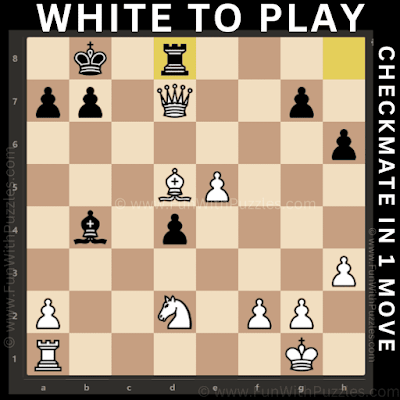



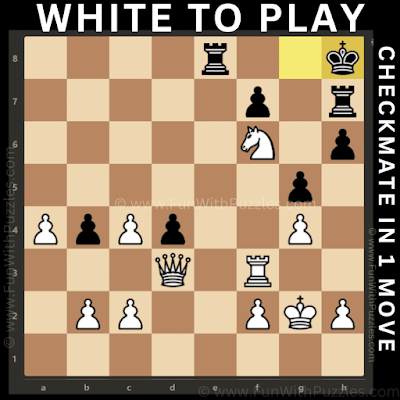
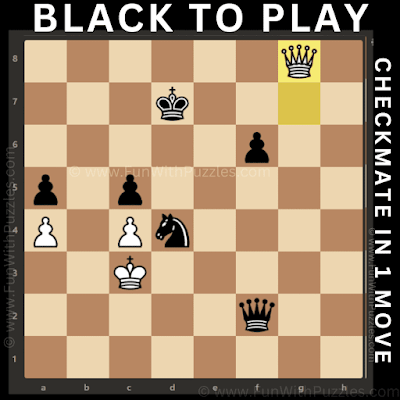


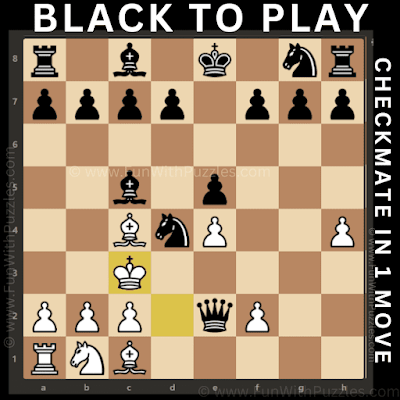
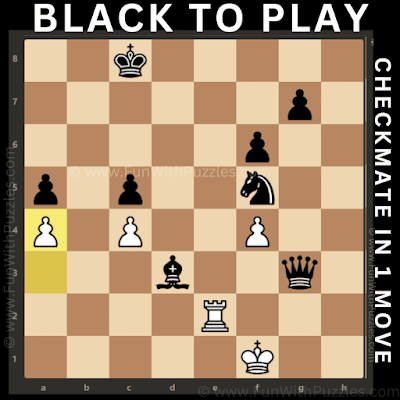











No comments: